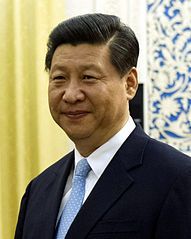2014 World News: Hong Kong

Demonstrators demand that citizens have a direct say in who can run in upcoming elections
by Beth Rowen
Elections in Hong Kong aren't scheduled to be held until 2017, but the way in which candidates will be selected caused massive protests in the summer and fall of 2014. China said in December 2007 that Hong Kong citizens will directly elect the chief executive in 2017 elections and the legislature by 2020. However, the candidates will have been approved by the Chinese government. Under the current system, an election committee loyal to the Chinese government elects the chief executive and a body made up of pro-China business groups elects half of the legislators. In June and July 2014, the pro-democracy group called Occupy Central held an unofficial referendum on how the island's chief executive will be elected in 2017. About 90% of the 800,000 who voted endorsed giving citizens direct say in who can run in the election. Weeks of pro-democracy protests followed the referendum. In late August, China's National PeopleâÂÂs Congress Standing Committee ruled that the 1,200-member election committee would vote on candidates for chief executive, and those garnering votes from more than half of the committee could run. The decision sparked much larger protests, which intensified throughout September, with tens of thousands of demonstrators shutting down the heart of the business district. On September 28, police in riot gear cracked down on protesters, using tear gas and batons. Despite the violence, protesters returned to the streets. About 100,000 protesters turned out after the crackdown and set up camps surrounded by metal barricades on highways and streets near government buildings and crowded business districts. The protests threatened the stability of the financial hub. The protests continued into October, but the number of people participating dwindled. On October 21, student protesters and government officials held a televised, two-hour meeting. Little progress was made, as Carrie Lam, the Hong Kong official who headed the talks, said the two sides must "agree to disagree." Nevertheless, the talks were notable for occurring at all. In November, police, acting on a court order, began dismantling the barricades. They initially met little resistance from protesters, whose numbers have dwindled and who have lost support of residents as it became increasingly clear that the government would not budge on the election issue. But their effort to take down barricades in the Mong Kok district was met with resistance, and police used tear gas on the demonstrators. Dozens of protesters were arrested. —Beth Rowen |
- More from 2014 Year in Review









